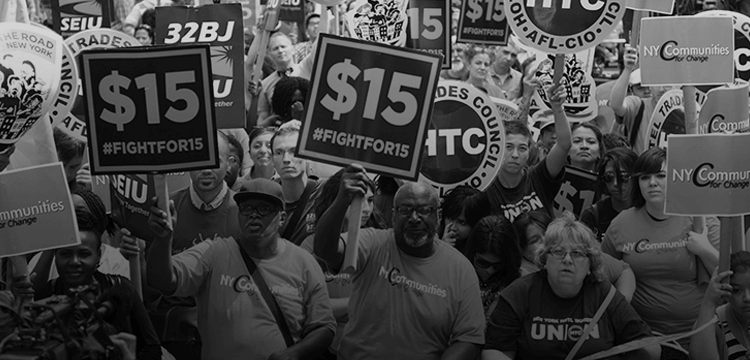The Department of Labor just released its final rule to amend the Fair Labor Standards Act (FLSA) by increasing the overtime exemption for salaried employees from the current modest amount of $23,600 ($455 per week) to the exorbitant amount of $47,476 ($915 per week). As known as the “Overtime Rule,” this is a drastic increase of over 100%.
The overbearing and damaging “Overtime Rule” from the Department of Labor will bring new costs to businesses, suppress employment options for workers, and stagnate employee progression in their workplace.
The rule, which will take effect Dec. 1, raises to $47,476 the salary threshold under which virtually all workers qualify for overtime pay. That’s more than double the current salary threshold of $23,660 but below the Labor Department’s proposed threshold of $50,440.
It’s also more than double the current threshold of $23,660 (though about $3000 below the threshold proposed in July).
With such a severe increase in the overtime exemption, business and workers will be forced to make sweeping changes, having a negative effect on workers. Because of the increased cost of overtime, many employers will be forced to make convert salaried employees to hourly pay, lay off workers, or reduce hours for employees. An Oxford Economics study revealed many of the sweeping changes that would affect over 2.1 million retail and restaurant employees:
• 32% Would Be Converted To Hourly From Except Salaried
• 21% Would Earn About $11,600 More In Overtime Pay On Average, However, Employers Would Lower Base Wages So Workers Will Not See Any Real Income Gain.
• 11% Would Have Their Hours Reduced, A Loss Of $2.32 Billion To Management/Supervisory Workers.
Businesses would be forced to comply with the lawless overtime rule by December 1, to avoid possible penalties or fines from the Department of Labor. With such an unrealistic time period to comply with this drastic change, businesses will be forced to make radical operational changes amounting to $745 million in compliance costs for the retail and restaurants industries alone. A recent article fromForbes outlined some of the charges businesses will be required to make:
For businesses, the changes will require paying close attention to the classification of employees, hours worked, assigned job duties, how time is tracked and how compensation is paid.
Because of the tremendous price tag to businesses, industry associations from various sectors have come out in stark opposition to the “Overtime Rule.” See some of what they have said about how the rule will impact them below:
National Retail Federation – “NRF is opposed to the proposal because it threatens to reverse progress seen since a 2004 update that eliminated vague and outdated language that had caused extensive litigation over disputed overtime…Retailers and restaurants are concerned because the proposed change in wage levels could bring many store managers or assistant managers under overtime rules, taking away their ability to use their own discretion in deciding whether to put in the extra hours sometimes needed to do their jobs.”
American Bankers Association – “ABA has aggressively opposed the rule, submitting comments to the DOL, meeting with representatives from the Office of Management and Budget and collecting feedback from bankers across the country on the rule’s consequences, particularly for community banks and their employees.”
National Restaurant Association – “Serious concerns remain about how the Department of Labor’s proposed overtime revisions could impact restaurant operations and opportunity for employees.”
National Federation Of Independent Business – “New Overtime Rule Add Costs To Small Businesses And Hurts Workers.”
Once again, the Department of Labor is writing intrusive rules looking to continually bring businesses to their knees. These rules, not approved or passed by Congress are enacted into law, leaving businesses and workers to face the destructive consequences of these unlegislated mandates and regulations.

